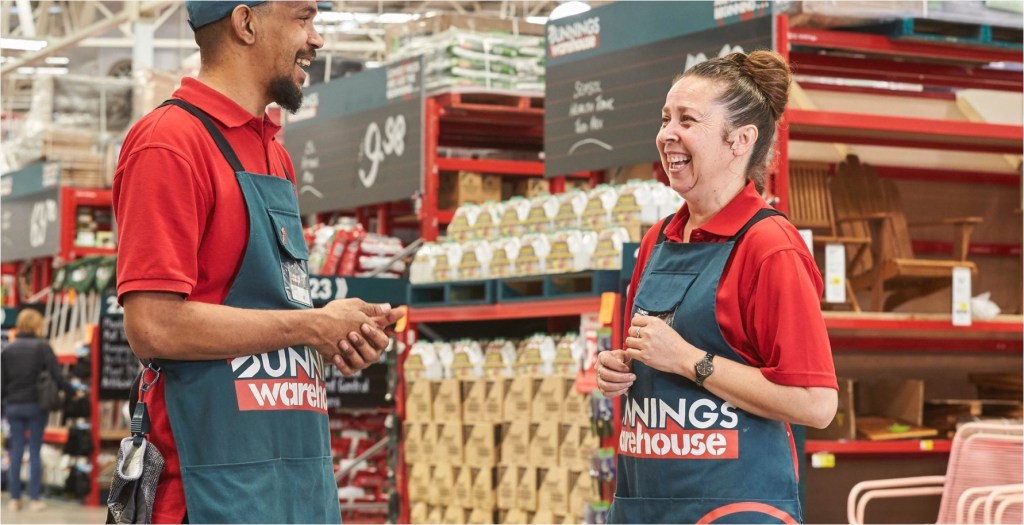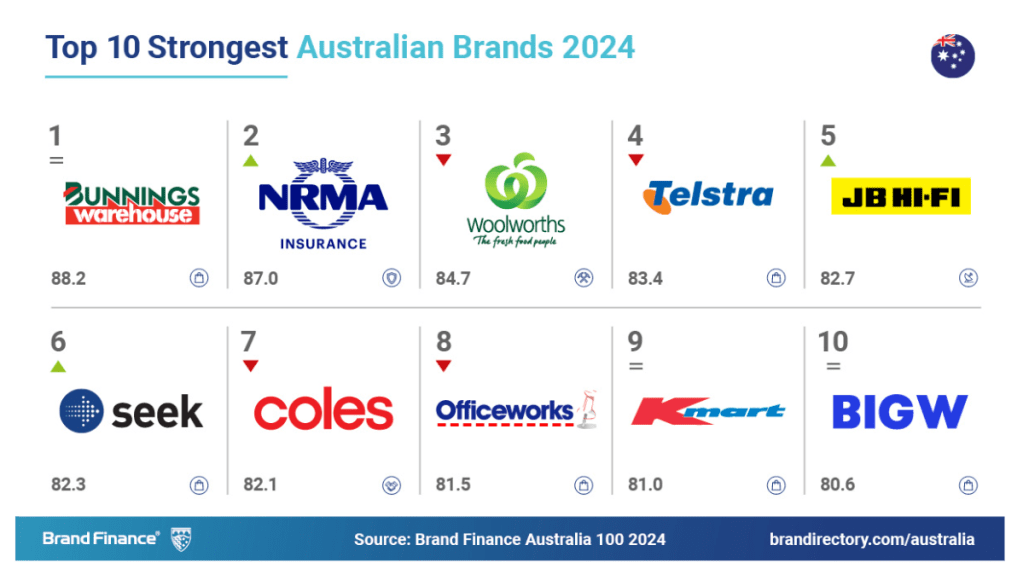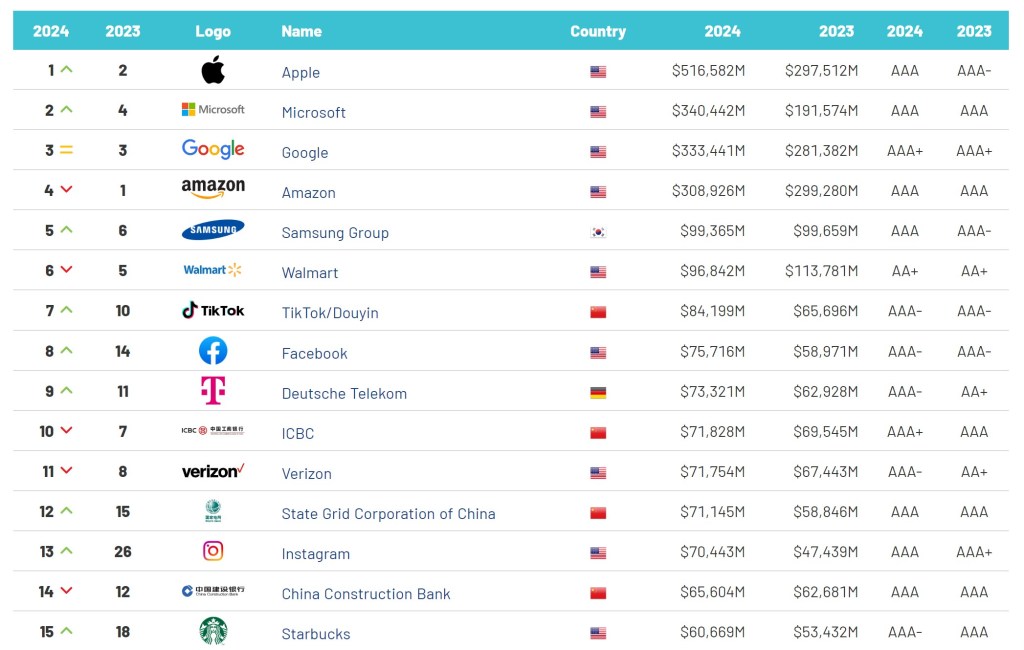Brand Finance has revealed its ranking of the strongest Australian brands. Heading up the list are Bunnings, NRMA, and Woolworths. Meanwhile, Qantas dropped 22 places in the wake of a turbulent year for the national airline.

If there’s one thing Aussies love, it’s a trip to the home improvement store.
Bunnings Warehouse held on to the top spot in the 2024 Brand Finance rankings of brand strength, clinching back-to-back-to-back titles as the country’s strongest brand in 2022, 2023 and 2024.
Joining the Wesfarmers-owned company in the top 3 is insurance company NRMA and Woolworths supermarkets.
In addition to Bunnings and Woolies, 5 other retail outlets made the top 10, which may suggest that positive face-to-face interaction with customers contributes to brand strength.
“The retail sector was severely affected by inflation in 2023 which led to a reduced growth rate. It nonetheless remains the most valuable sector in our rankings with an aggregate brand value of AUD46.5 billion,” the Brand Finance report reads.

Looking at Australia’s top 100 strongest brands, some 23% of them operate within the retail sector.
Managing director of Brand Finance Australia, Mark Crowe, says that all companies are operating in a difficult environment given inflationary pressure. Australia’s strongest brands are still growing, despite the challenging macro-environment.
“This year’s Australia 100 highlights the important role of strong brands during challenging economic times,” says Crowe.
Further brand strength can be developed by ‘providing reassurance to consumers confronted by cost-of-living pressures’ according to Crowe.
Illustrating that point is that 60 of the 100 strongest brands have increased in brand value year over year. The cumulative value of Australia’s top 100 brands is now just under $200 billion — a gain of 2.5% on last years numbers.

At the other end of the brand value scale, is Qantas.
The airline once synonymous with calling Australia home, has seen a significant decline in brand strength over the last five years. It was the strongest brand in the country in 2019.
“After a decline of four points in last year’s rankings, Qantas has experienced a further drop of seven points in brand strength,” the report reads.
While embattled Qantas CEO Alan Joyce retired in November 2023, the first three months of new CEO Vanessa Hudgens’ reign have not yet done much to improve the strength of the brand.
The Brand Finance report attributes Qantas’ decline to reputational issues.
A bright spot for the airline, is a division that doesn’t feature the renowned red and white flying kangaroo logo. Jetstar is not just unaffected by the tanking brand strength of Qantas, but thriving.
“The performances of Qantas and Jetstar see them moving in opposite directions – with Qantas falling 22 places to become Australia’s 41st strongest brand (it was the strongest in 2019) and Jetstar climbing 20 places to 46th strongest.”
Global brand rankings
Brand Finance also puts out a list of the most valuable global brands. Apple takes the top spot by a mile, followed by Microsoft, Google, Amazon, and Samsung.

“Apple has grown its brand value through strategic diversification and premiumisation, moving away from heavy reliance on iPhone sales towards ventures into wearables and services such as Apple TV subscriptions,” says David Haigh, Chairman and CEO of Brand Finance.
“According to our research, more than 50% of respondents recognised Apple as expensive, but worth the price, reinforcing the brand’s ability to demand a price premium”.
The Brand Finance results reveal that globally, it is tech companies that have the highest brand value.
Bucking the retail trend seen in Australia, only two of the Top 10 most valuable global brands have dedicated retail outlets — Walmart and T Mobile.
Another big mover in the global brand value rankings is NVIDIA. The AI semiconductor manufacturer saw its brand value climb 163% over the last 12 months amid the AI boom. The company behind the GPU semiconductors that are essential in developing AI, is now the world’s fastest-growing brand.
On the other end of the spectrum is Tesla, led by controversial billionaire Elon Musk. The U.S. headquartered electric car manufacturer fell out of the global top 10 most valuable brands this year, and now sits at number 18.
Look back on the week that was with hand-picked articles from Australia and around the world. Sign up to the Forbes Australia newsletter here or become a member here.